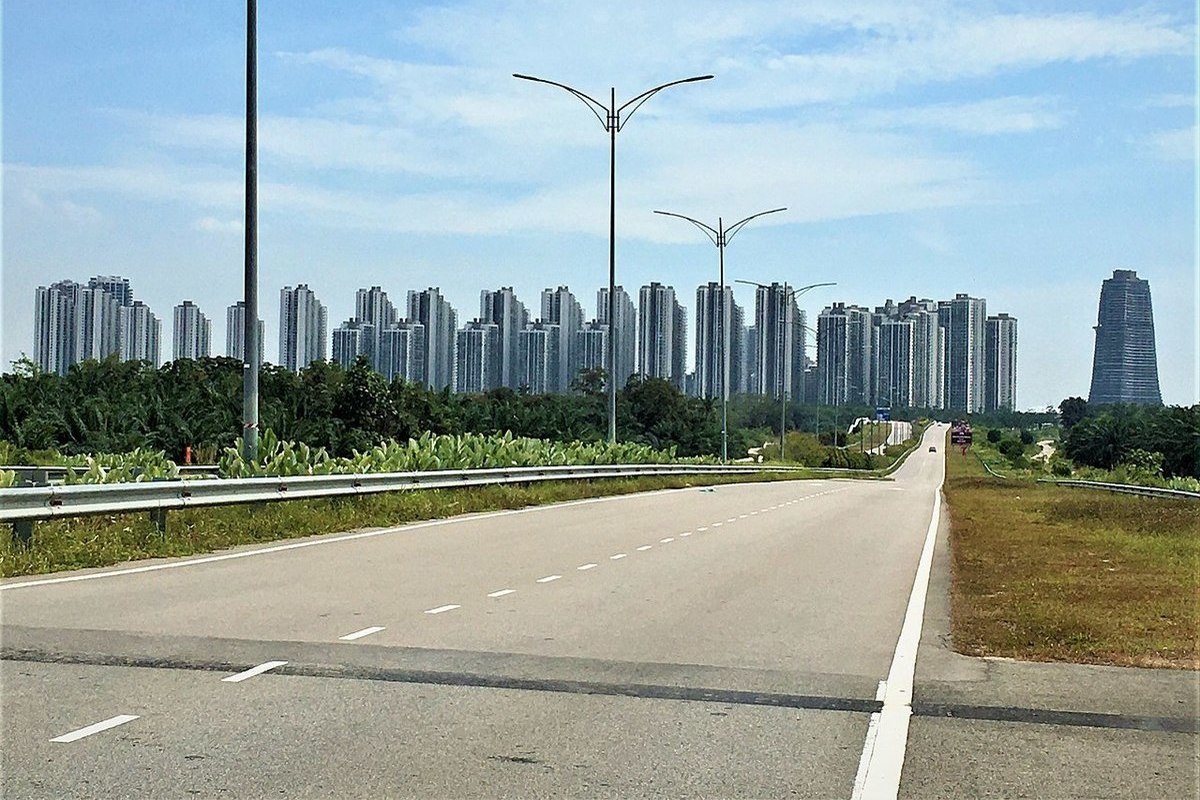The environmentally friendly metropolis built by the Chinese has turned into a ghost town
[ad_1]

“I managed to escape from this place”
The largest city, Forest City, as planned by a Chinese construction company, has turned into a ghost town because no one wants to live in it. The extensive residential complex is located in Malaysia. The green metropolis project has failed because only a few apartments are occupied and people may never meet their neighbors.
The last residents are fleeing Forest City: the unpopular ecological metropolis does not attract people. Those who left there notice that “the possibility of returning there gives me goosebumps. It’s lonely there – just you and your thoughts.”
China’s largest real estate developer Country Garden unveiled a $100 billion megaproject as part of the Belt and Road Initiative in 2016. At that time, the creators of the project thought that such a city would be popular due to the real estate boom in China.
In Malaysia, the company’s plan was to build an eco-friendly metropolis with a golf course, water park, offices, bars and restaurants. But for eight years now it has served as a fruitless reminder of the consequences of the housing crisis. Currently, only 15 percent of the entire project is built and, according to recent estimates, just over 1 percent of the total development is occupied.
Despite nearly $200 billion in debt, Country Garden said it was “optimistic” that the full plan would be implemented.
Forest City was advertised as “a dream paradise for all mankind.” But in reality, it was aimed solely at the Chinese domestic market, offering willing people the chance to buy a second home abroad. Its prices were beyond the reach of most ordinary Malaysians. But the isolated location, far from the nearest major city of Johor Bahru, has scared off potential tenants and earned it the nickname “Ghost Town”.
“Honestly, it’s creepy,” says one of the apartment’s tenants, Nazmi Hanafia, “I had high expectations from this place, but it was such a bad experience. There’s nothing to do here. I’m glad I managed to escape from this place.”
Forest City certainly gives off a strange vibe – it looks like an abandoned resort. The deserted beach has a shabby playground, a rusting vintage car and a white concrete “stairway to nowhere.” There are signs near the water warning that swimming is prohibited due to crocodiles.
In the Country Garden showroom there is a huge model of the city, where a couple of bored employees sit at a sales kiosk – a sign above them reads: “Forest City. Where happiness never ends.” In reality, almost all shops and restaurants are closed. And as night falls, Forest City plunges into pitch darkness. In the huge apartment buildings, no more than half a dozen lights are on. One of the few local residents, Joanne Kaur, says that even during the day, when you walk out of your front door, the hallway is dark. She and her husband are the only ones on the entire floor, and they also plan to leave at the first opportunity.
On social media, under a post about the construction of the city, one buyer from Liaoning province states: “This is misleading. The current Forest City is a ghost town. There are no people there at all. It is far from the city, has limited living quarters, and is difficult to get around without a car.”
Some analysts also question the feasibility of building a mega-complex in a country where the political and economic situation is unstable. The current Malaysian government supports the Forest City project, but it is unclear to the potential buyer how long this will last and to what extent.
When it comes to China’s real estate crisis, Forest City is a classic example of ambition versus reality. Ultimately, the fate of the project depends on the Chinese government. Last month, reports emerged that Country Garden had been included in a shortlist of developers to receive financial support from the Chinese government, although the extent of that support was still unclear.
[ad_2]
Source link








